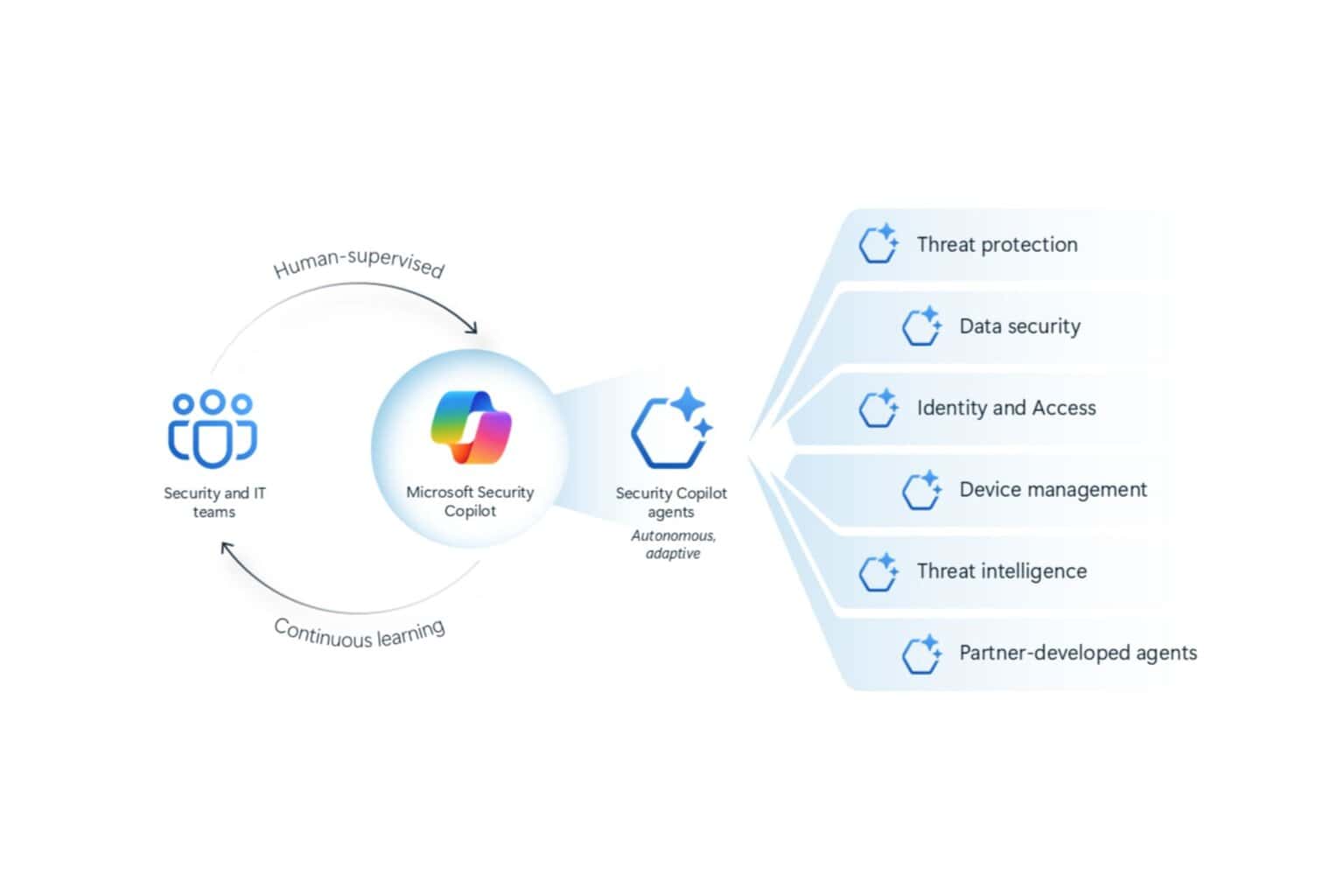
Microsoft introduces 6 Security Copilot agents to effectively combat cyberattacks
- 25.03.2025 10:23
- windowsreport.com
- Keywords: Cyberattacks, AI
Microsoft introduced six Security Copilot AI agents to manage cyber threats. They handle tasks like phishing triage and data loss prevention, enhancing protection through integration with existing tools.